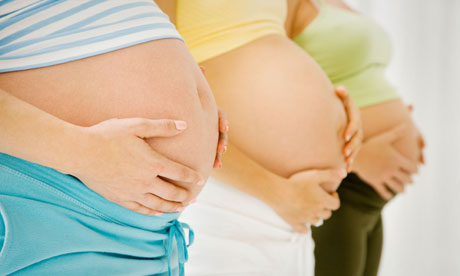
Babies born to women who suffer from high blood pressure in early pregnancy may be at higher risk of birth defects, according to research in the British Medical Journal.
Drugs taken by pregnant women for hypertension – angiotensin-converting enzyme (ACE) inhibitors – are known to have a toxic effect on unborn babies during the second or third trimesters.
But researchers led by Dr De-Kun Li of the Kaiser Foundation Research Institute in California sought to find out if taking ACE inhibitors in the first trimester caused birth defects. They studied the health records of 465,754 pairs of mothers and infants in California between 1995 and 2008, and concluded that while the drugs did not cause defects, the underlying hypertension itself could increase the risk.
One in 200 mothers has a baby with some sort of birth defect. The research shows that, for those with hypertension, the risk goes up to 1.25, or five in 800.
High blood pressure raises the risk of a baby having a congenital heart defect by 41% and of it having a neural tube defect, which can cause serious disabilities such as spina bifida, by 43%.
Professor James Walker, senior vice-president of the Royal College of Obstetricians and Gynaecologists, said the study had solved a dilemma by confirming that women can take ACE inhibitors both before conceiving and in the early months of pregnancy without worry.
"While this paper tells us that hypertension is associated with a slight increased risk of birth defects, smoking and excessive alcohol consumption in pregnancy are both greater risks than hypertension," he added.
Professor Alastair MacLennan, professor and head of discipline of obstetrics and gynaecology at Adelaide University in Australia, said: "For the general public, the message is that to reduce the risks from high blood pressure and diabetes in early pregnancy they should not leave having their family too late in reproductive life, that is over age 35, they should avoid obesity and, if diabetic, they should have good glucose control before trying to get pregnant."

